Supermarine Spitfire

Legend of World War II.

Escorts groups of bomber (so-called air support), raids on ground targets(so-called sweep),air support of ground forces.
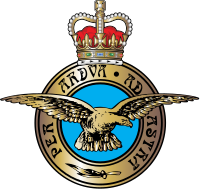
RAF emblem-Per ardura
at astra(Despite the adversity of fate to the stars).
Supermarine Spitfaire F.Mk V.b,serial number.: W3249 mark.DU-K May
1942-february 1944.Karel Pošta DFC, F/Lt,312 Sqdn.
He belonged to the 312th Czechoslovak Fighter Squadron RAF.
We can talk about a British fighter aircraft from World War II with the
name Spitfire fear to say it is legendary. This could be confirmed by hundreds
of allied pilots on all fronts of World War II but also after its end
(Spitfires also fought in Korea.) Among the hundreds of pilots who relied on
the fighting, for Spit sticks on theirs excellent combat characteristics, also
included members of three Czechoslovak fighter squadrons of the RAF in Great
Britain. It was:310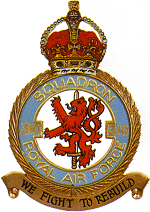 Moto:We Fight to rebulit.
Moto:We Fight to rebulit.
,
312,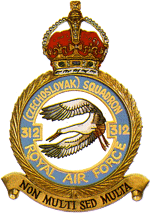 Moto:Non
multi sed multa-Not many of them bat much
Moto:Non
multi sed multa-Not many of them bat much
313,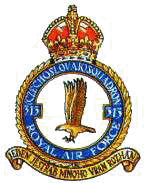 Moto:One hawk scatters many crows.
Moto:One hawk scatters many crows.
The Czechoslovak Fighter Squadron RAF.
Members of
these squadrons, rearmed to Spitfires Mk.V. from mid-1942 and flew on them
until until February 1944, when they switched to Spitfires Mk. IX associated
with the name of the world-famous aircraft designer R.J. Mitchell. He became
famous in the 20s and 30s of the twentieth century, the construction of float
racing aircraft that won the Schneider Cup races, which was in 30 years last
popular very popular. Mitchell-designed racing seaplane S. 6B, reached
29.9.1931 light speed record 657.80 km / h.His experience with development of
high-speed racing aircraft, used in the construction of a new fighter aircraft
according to the specifications of the British Ministry of Aviation F.37 / 34.
It was self - supporting monoplane with retractable landing gear, covered
cabin, speed up to 500 km / h and armament of up to eight wheelers. Mitchell
designed completely newly
 Spitfairy Mk. IX.b a Mk.XIV from Duxfordu.
Spitfairy Mk. IX.b a Mk.XIV from Duxfordu.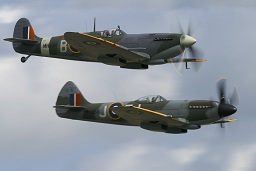 Spitfires IX B a IXV on air.
Spitfires IX B a IXV on air.
conceived solution of an all-metal fighter with a shell fuselage. The first prototype Spitfira took off March 5, 1946.Spit surprised immediately with its performance it also had a new engine, the in - line twelve - cylinder Rolls-Royce PV-12 (Predecessor famous Merlins). The first order for 310 machines came to Supermarine three months after the launch of the first prototype.Following it was increased by another 200 ks.R.J. Mitchell, however, did not experience the success of the Spitfire, died June 11, 1937 in his 42 His successor in the development of Spitfire, became his collaborator J.Smith.The first squadron of the RAF (19.sqadr.v Duxford) received the first Spit in August 1938. (It was an aircraft v.č.K9789) It was a Spitfire Mk. I. with Merlin II engine. O power of 757 kW. It was powered by a double-bladed propeller with a diameter of 3,350 m. The cabin still had straight, not with a typical bubble .This was only from the eighth machine.This Spitfire Mk. I. was without armor and was used for tests and retraining. In September 1939 2160 aircraft were already ordered. (Mk.I.) However, production stalled and at the beginning of the war was produced only about 310 Spits. Since June 1940, a batch of 30 pieces has been produced. Spitfires Mk.I.b armed with two 20 mm cannons. later supplemented by four rounds. Spitfiry Mk.II. with more powerful engine Merlin XII. which had power: 864 kW. was manufactured since June 1940.Fighting units began to come during the Battle of Britain. 750 Mk. II. a aircraft were produced (armament: 8x Browning caliber 7.7 mm) and 170 aircraft Mk.II.b (armament: 2x cannon Hispano caliber 20 mm and 4x machine gun Browning caliber 7.7 mm). Another important version was the Mk.V. It was based on the version Mk.I. (installation of more powerful engines Merlin 45-50 1081 kW) and was developed into amount of subvariant. The incorporation of a more powerful engine, slightly affected the shape of the fuselage below motorem. Verze Mk. V. began production in June 1941. 95 aircraft were produced type Mk. V. a (8x machine gun Browning caliber 7.7 mm), 3920 aircraft type Mk. V. b (2x cannon Hispano caliber 20 mm and 4x machine gun Browning caliber 7. 7 mm) and 2450 aircraft Mk.V.c s so-called universal wing (could carry variable armament) with armament 2x cannon 4x machine gun or 4x cannon. Another 155 aircraft created by rebuilding the Mk.I. and Mk.II. At the beginning of 1943, the RAF introduced a more precise designation of the purpose for which it was which subversion intended.F Mk.V.a, b, c-for combat in medium and higher altitudes, LF Mk.V.b was designed for deep raids. Some Spitfires of this subversion flew with "truncated wings", for better maneuverability at low heights. Series Mk.V. was in 1942-43 modified for suspension 1x 227 kg bomb under the fuselage, or 2x 113 kg. bombs under the wings.In addition, they could carry up to 4 types of additional tanks up to 775 l. for longer range, under the fuselage.
Supermarine Spitfire F.Mk V.b 312.Czechoslovak fighter squadron.RAF marked.DU-K
Supermarine Spitfire F.Mk V.b 312.Czechoslovak fighter squadron RAF marked.DU-K
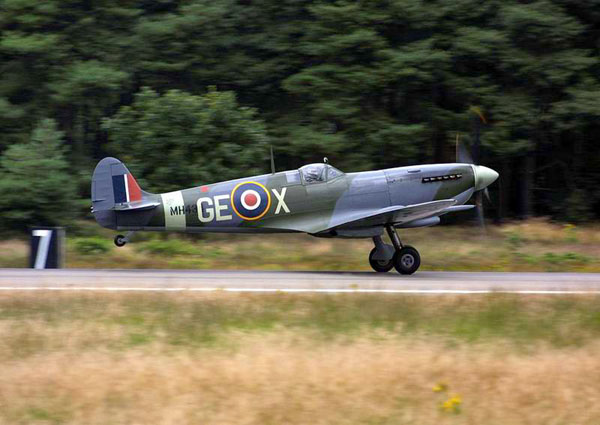
Supermarine Spitfire Mk.IX.c s.n.: MH 434 marked:GE-X aiport Klaine Brogel,Belgie 18..6.2002
Czechs in Spitfires:For yourself!
As mentioned above, the three Czechoslovak fighter squadrons 310, 312, and 313 they played a significant role in the fight against Hitler's Germany. In addition to the original, Hurricanes, they fought mainly in Spitfires. But the Czechoslovaks also fought in others Squadrons of the RAF. They were the 1st Fighter Squadron, where. replaced 30 Czechoslovaks, 68th Night Fighter Squadron (Night Fighter Squadron), where the Czechoslovaks formed half of the state. Then it was the 111th Fighter squdron (Scottish), 122nd Fighter squdron (bomber escorts), 303. (Polish) Fighter Squadron RAF, 250th Night RAF Fighter Squadron, 96th RAF Fighter Squadron, 601st RAF Fighter Squadron, 198th Fighter Squadron RAF. Total operated in the Royal Fighter Air Force, over 2500 Czechoslovak pilots. But other Czechoslovaks worked as mechanics, service pilots (overflights of aircraft from the USA and between bases in England), radio operators and many other specializations. There is no room to describe them all life stories, many brave Czechoslovaks. But I would like to mention here four pilots: Three pilots from Pilsen, members of the West Bohemian Aeroclub: Sergeant Karel Paulík (note: in some sources the name Pavlík is given, I used the name, according to the commemorative plaque, see picture below. ), which served in the 313rd Fighter Squadron, in The Spitfire flew as an escort of ship convoys, an escort of bombers over France and carried out raids on German airports and bases in France. He was May 5, 1942 shot down during a combat flight (escort bombers Dagles Boston Mk. III.) over Franco-Belgian border near the village of Dramouter. He was 23 years old. Pilot Officer Alois Záleský of the 312 fighter squadron of the RAF (Holder of the Czechoslovak War cross), took part in escorting bombers over France, during the Allied invasion, as air support over Juno Beach (support for Canadian landing units), died for an engine failure during a high-altitude training flight with drop training additional machines. His machine broke over England on February 9, 1945. He was 29 years old. Sergeant Václav Šindelář member at 57.O.T.U. (Operational Training Center), died 19 April 1943 in a high-altitude training flight, in a failure of the oxygen He crashed from 9000 m. near Alnwick. He was 25 years old.
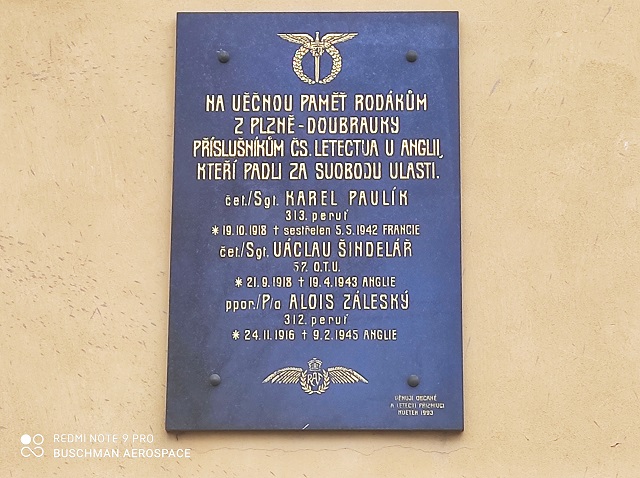
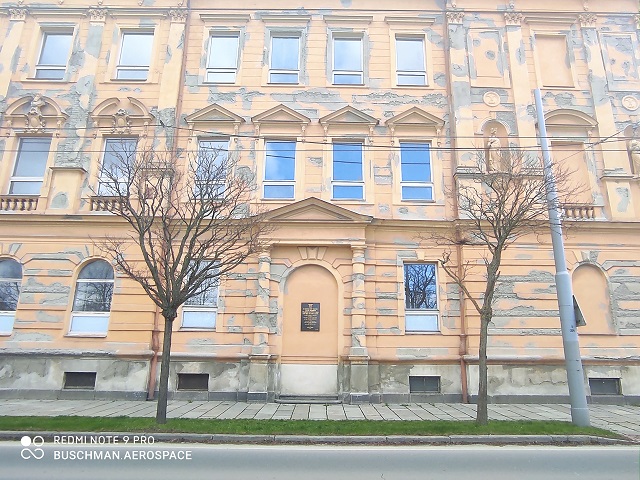
Memorial plaque to fallen pilots on Habrman Square in Pilsen on Doubravka.
The last 4th pilot originally from Louny is the legend Lieutenant General František Fajtl.

Holder of the highest state decoration of the Czech Republic, the White Order of the Lion, the Order of Milan Rastislav Štefánik and the British Distinguished Flying Cross (Something like a major air cross) and many other honors. This Bohemia (the only one of of this four who survived) is an incredible proof of the strong will in the fight for What Mr. Fajtl did and proved to be able to sit down behind the stick again Spitfire and continue to fight the Germans is admirable! Like many in the year In 1939 he left for Poland via France. There he fought on Morane Saulnier and Marcel Bloch. After the occupation of part of France by Germany and the establishment of Visista France went to England. There he fought first on the Howker Hurricanes, later on beloved Spitfires. He passed through several squadrons, including the aforementioned 310th and 313rd Squadrons of the RAF. He became the first Czechoslovak to become the commander of 122 in April 1942. Squadron (Bombay), which has achieved the status of a commanding officer-other than Czechoslovak Squadron RAF (otherwise: Bohemia commanded the English) .On May 5, 1942 he was shot down over northern France, accompanied by bombers over the city of Lile nearby town of Hardifort near Airport (Meserscmit) Saint Omer. In air combat shoots down Meserschmit Me 109. He himself is hit and with a damaged machine, instead of headed for the channel attacking and shooting down another Me 109. Then he is attacked 6. enemy Meserschmity.He is hit several times, his Spit. he has been shot cabin and wings. He escapes by dive, trying to escape to the canal. Then but his machine engine shuts down. Because after escaping at a low height he can not jump out with a parachute. So he will make an emergency landing on the plowed field. It's unfortunately, 100 meters from the German headquarters. So he runs along the creek and hides in a ditch. The Germans will launch a massive patronage action. Hidden in the water by searchers several times exceeded. He escapes, but there are guards everywhere. At night, it sneaks around the German patrols. He escapes. It heads south, through occupied France, to Vishista France to Spain. Many French people will help him on his journey. However, he will also meet with a informant who gives it to the Germans. But in time it will be revealed and saved and after several times he escapes the Germans. He passes the Cordilleras from France to Spanish-controlled General Frank (this journey (from the north of France to Spain) will take him a month and half (50 days on the run). The Germans did not recognize the Czechs as prisoners of war. As the "citizens" of the Protectorate were considered ruins. And so they were treated as well. And Spain is arrested and imprisoned in the famous campo Miranda. There he spends two months in in unsatisfactory conditions. He also meets captured Czechs there. After repeated emergencies of the English Attaché, was released and crossed Gibraltar gets back to England. There arises a general wonder - it was already considered dead, or at least captured. He is praised and admired and offered several times VIP function. However, he refuses and asks for assignment as a commander to the fighter squadron. He sits down behind Spitfire's stick again and fights for freedom. It doesn't stop until the end of the war!
He described his incredible story in a book: (I recommend reading. It should be a "compulsory reading" in schools and House and Senate!)
Such stories when I read (and that not only Czechs wrote them during the Second World War) , I have to be ashamed twice. First of all, when I realize that I am not personal as brave as Mr. Fajtl, and that I'd wrap it up much, much sooner! second, when I remember how we-liberated Czechs rewarded Mr. Fajtl and to his fellows, who fought for our freedom and often paid with it most valuable-life! For the record, I'll remind you for those who forgot or you younger people who did not learn about it in schools: After the war he was in the new for a short time Czechoslovak Air Force, where he had to pass on his experience. After February 1948 he was from army fired.Then he was arrested and imprisoned without trial for a year and a half in a forced camp work in Mírov. After his release, he had no choice but to work as an accountant. In 1964 was partially rahabilitated. Mr. Fighter Fajtl, wrote over 16 books about his experiences but also about the experiences of his friends - in Czechoslovakia, however, mostly to him were not released and so in England, France and Germany readers could find these heroic deeds read earlier than with us. Full rehabilitation and perhaps even thanks to May 1, 1990 when he was (together with his friend Col. Karel Mrázek and Pavel Kocefelda President V. Havel promoted to the rank of Major General v. v. and awarded the Order General M.N. Štefánik. And it was not until 2004 that President V, Klaus, granted him the highest Czech military decoration: Order of the White Lion.
I think today in the 21st century very little do we realize how high the price these and many others had to be heroes, pay for our freedom and democracy today Today there are many parts of the world where this "comfort" of FREEDOM is not needed our heroes and all those who deserved today's peace and freedom, remember, celebrate, teach about them in schools and constantly emphasize how they are freedom is fragile and expensive. She needs to be protected and fought for by everyone If we don't do that, we could lose our freedom it would be devastating for us and stupid and cruel- to die against these our heroes would be unnecessary!
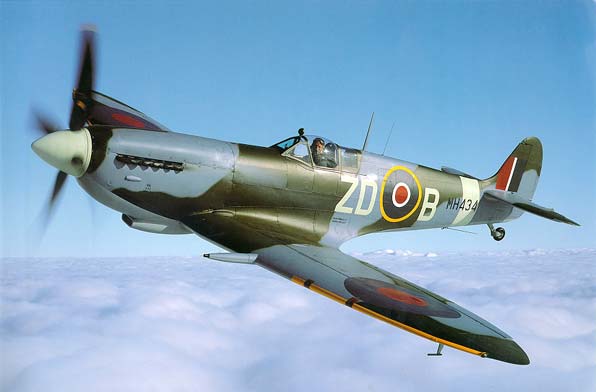
Supermarine Spitfire Mk IX.c s.n.:MH 434 marked: ZD-B groups-Old flyng machine company.
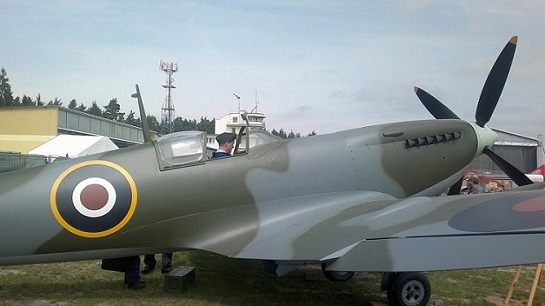
Model of Spitfire Mk.IX on the day in clouds Plasy 2014, Czech Spitfire club:
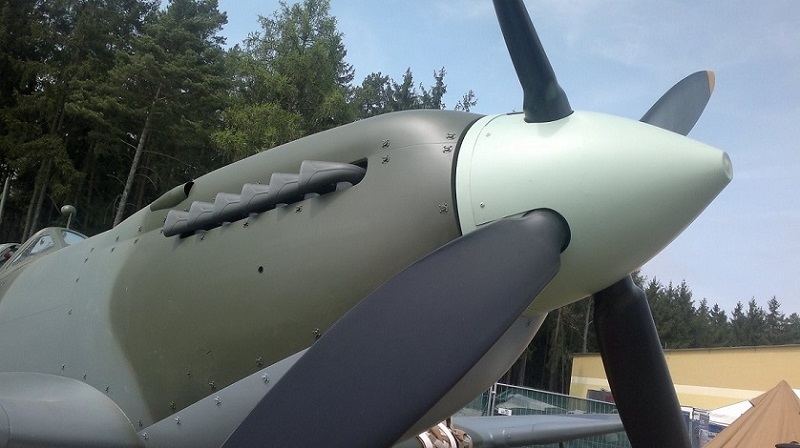
Model of Spitfire Mk.IX on the day in clouds Plasy 2014,Czech Spitfire club:
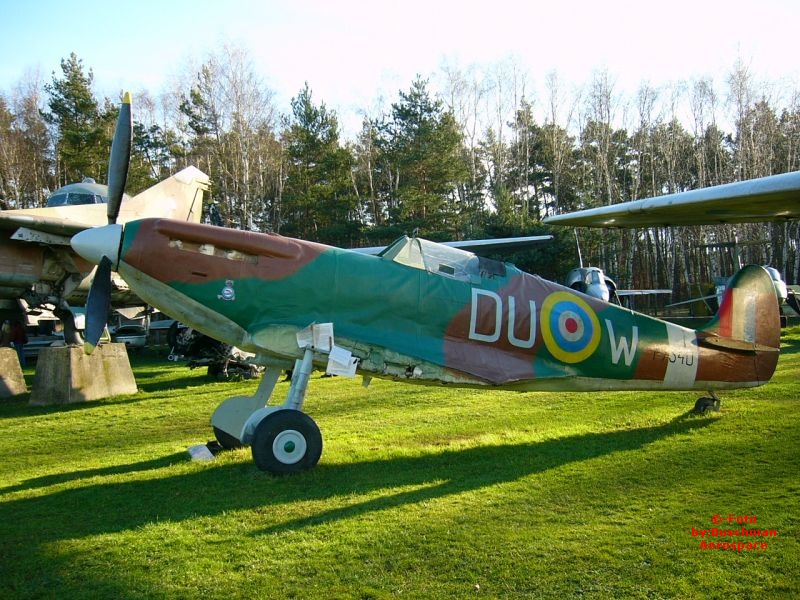
Spitfire model from the film Dark Blue World(Aipark Zruč-near Pilsen):
Technical data of the Supermarine Spitfire F.Mk V.b:
Wingspan-11.22 m., Length fuselage-9.11 m., Carrying area-22.48 m2, Aircraft weight-2291 kg., Maximum takeoff weight-3016 Kg., Max. speed at the main sea-540Km. / h., Max. 1829m./n.m.-574 Km./h., Access-10820 m, Climb-1448 m / sec.Dolet-756 km (no front tank)
Contact on : kontakt@zajimava-letadla.cz Thank you in advance for your opinions!
c-Buschman.aerospace,Vladimír Kroft 2005-2021
Copying and using text and images without the prior consent of the author of these pages is prohibited, according to the valid copyright laws of the Czech Republic and the European Union!
If the internet wind brings someone here who also has similar sites, they will be happy to I'll look at the pages of more experienced or even less experienced followers letadel. Thank you in advance for your links to your or other interesting www.